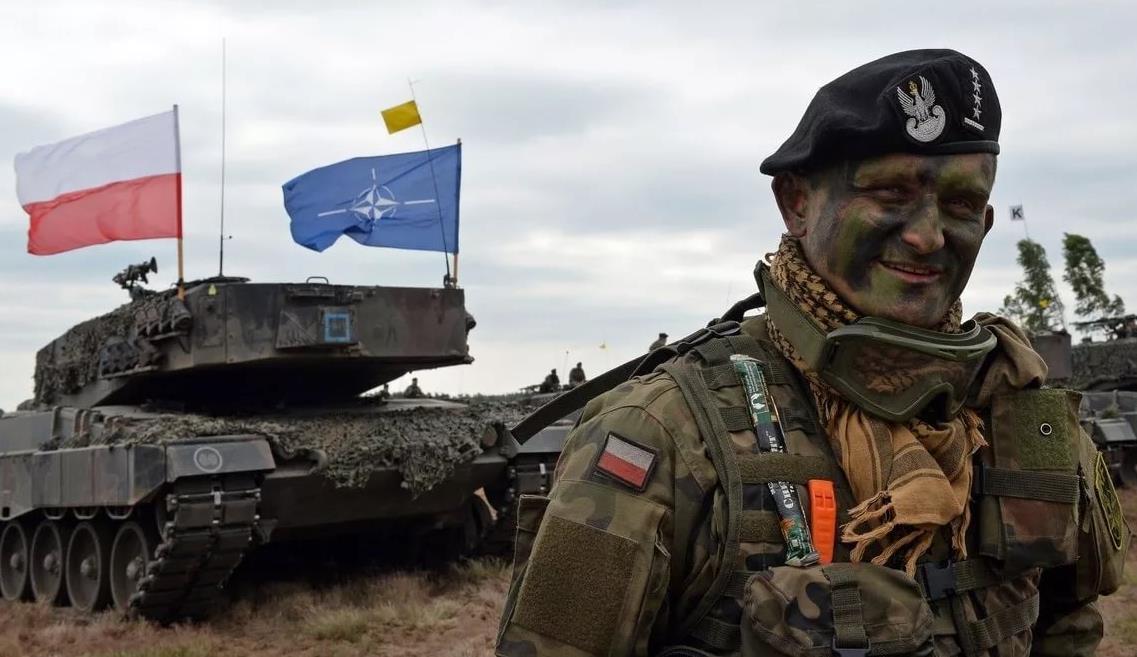Second front and deportations: Europe increases pressure on Georgia Article by Vladimir Tskhvediani
The plans of certain European circles to drag Georgia into a war against Russia by opening a "second front"—preceded by a "Maidan-style" coup—seem far from abandoned. However, now, against the backdrop of the Trump administration’s mediation efforts to establish peace in Ukraine, the Baltic states and Poland increasingly see themselves as the next potential "first front."
According to the Financial Times, the defence ministers of Estonia, Latvia, and Lithuania are concerned that a ceasefire in Ukraine would sharply escalate security threats to the Baltic states. In Poland, war anxieties are also growing, with fears that Russia might attempt to break through the so-called Suwalki Corridor to unblock its Kaliningrad enclave.
Against this backdrop, efforts to draw Georgia into an "anti-Russian military alliance" have been renewed. Salome Zourabichvili’s visit to the Baltic states—where she positions herself as the "legitimate president" and makes statements against Russia—is part of this broader strategy. At the same time, pressure on the Georgian government is once again mounting from the "European war party" and the leadership of those countries that, judging by their actions, seem determined to continue the conflict in Europe—even if a ceasefire is reached in Ukraine.
While the Baltic states, by intervening in Georgia's internal affairs and supporting the opposition, mainly limit themselves to making loud statements by their politicians—since they lack effective mechanisms to influence Georgia and its current government—Poland has chosen to take more sensitive actions that resonate with many Georgian citizens.
On March 5, 17 Georgian nationals were deported from Poland. Polish authorities signaled that this was just the beginning, with Prime Minister Donald Tusk himself marking the deportation. “The deportations have started. We are effectively dismantling Georgian gangs. Not words, but actions,” Tusk wrote on social media platform X.
At the same time, a campaign against Georgian citizens has begun in Poland, with accusations of their supposed “higher propensity for criminal activity.”

“Poland is a very tolerant country, but we will not tolerate crimes. We do not welcome criminal elements, and they will be deported… Regardless of whether it is petty hooliganism, drug trafficking, or involvement in organized crime,” stated Jacek Dobrzynski, spokesperson for the Polish Ministry of Internal Affairs.
At the same time, the percentage of Georgians involved in criminal activities is typically no higher than that of citizens from other countries residing in Poland. The majority of Georgians come to Poland to earn an honest living and support their families and loved ones back home.
Labor migration and remittances from migrants to their families are a significant factor in Georgia's economic and financial stability. The visa-free regime with EU countries has made European nations the main destination for labor migration from Georgia in recent years. There are, however, specific patterns in the migration of Georgians to Europe: while women typically migrate to Italy, Greece, and Spain for domestic work—such as caregivers and nannies—Georgians heading to Poland mainly seek employment in "male" professions, such as drivers, construction workers, and factory or manufacturing plant employees.
The demand for labor migrants from Georgia in Poland can also be explained by the specifics of migration processes in the country. Poles have long and actively migrated to European countries with higher wages, such as the UK, Germany, the Netherlands, and Ireland. This has created a labor shortage in the Polish job market, which is largely filled by labor migration from countries such as Ukraine, Belarus, and Georgia.
According to the Polish Social Insurance Institution (ZUS), as of 2024, the number of foreigners registered in Poland amounted to 1.128 million people. Ukrainians are the largest group, with 771,000 individuals, followed by Belarusians at 134,000. Georgians rank third, with an official count of 27,200 people.
It is important to note that, due to the ongoing war in Ukraine, there is a ban on the departure of men liable for military service aged 18 to 60. As a result, the majority of Ukrainians arriving in Poland have been women and children. Consequently, labor migration from Ukraine has not been able to meet the demand for "male-dominated" professions in the Polish job market, which has further contributed to labor migration from Georgia.
However, this situation could change in the near future. Most analysts believe that a ceasefire in the Russian-Ukrainian war may be reached soon. As a result, martial law in Ukraine would end, and restrictions on men leaving the country would be lifted. Poland is expecting a wave of labor migration from Ukraine, with many men coming to join their families already living in Poland. Of course, this will happen if, by that time, Poland and the Baltic states have not been drawn into the war with Russia.

In any case, if labor migration from Ukraine to Poland increases due to the end of martial law in Ukraine, the shortage of workers in "male" professions on the Polish labor market will be alleviated. In such circumstances, for political reasons and as a lever of political pressure on the Georgian government, Polish authorities may begin to impose strict limitations on labor migration from Georgia and deport Georgian citizens already residing in Poland on any pretext. Essentially, the deportation of Georgian nationals from Poland in early March 2025 can be seen as a kind of "warning" from the authorities in Warsaw to the official Tbilisi, signaling that more large-scale and painful measures against Georgian migrants could follow.
The actions of the Polish authorities are clearly coordinated with the EU leadership, which is reportedly using the threat of abolishing the visa-free regime as leverage against Georgia. This pressure is intended to force the country to align with Brussels and Paris' geopolitical objectives, effectively preventing Georgia from continuing its independent foreign policy. Since the earnings of labor migrants in Poland are a significant factor for many Georgian families, the first symbolic deportations and the tightening of conditions for their stay and work have been directed specifically at Georgians. Further actions by the authorities targeting Georgians in Poland may be followed by similar measures in other European countries.
However, it is precisely due to its sovereign policy and mutually beneficial relations with its neighbors, primarily Türkiye and Azerbaijan, that Georgia's economy is experiencing dynamic growth, ensuring double-digit annual GDP growth (according to "Geostat," Georgia's GDP increased by 13.6% in 2024). Large-scale investment projects are being implemented, and, as a result, the situation with employment is improving positively.
As a result, an increasing number of labor migrants are returning to Georgia and finding employment there. On the contrary, if the Georgian authorities had succumbed to EU pressure, imposed anti-Russian sanctions, or, even worse, opened a "second front" against Russia under Western pressure, it would not only have led to an increase in labor migration due to an economic collapse. War would have triggered a mass exodus of refugees from the country and its depopulation, much like what happened in Syria or Ukraine. Therefore, the unfriendly actions of European countries, including Poland, towards Georgian citizens are much less harmful compared to what could have happened to Georgia if the "Maidan" had triumphed, as desired by the ruling elites of the leading EU countries.
Vladimir Tskhvediani, Georgia, for Caliber.Az








